Study in Denmark. 12 best institutions in Denmark
-
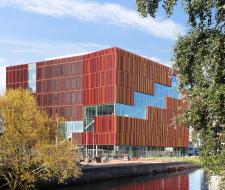 from 9250.00 € / yearApply with documents
from 9250.00 € / yearApply with documents -
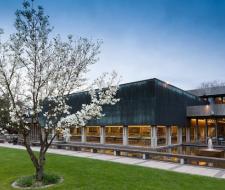 from 19000.00 $ / yearApply with documents
from 19000.00 $ / yearApply with documents -
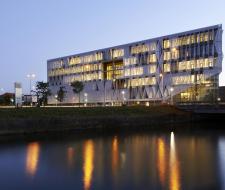 from 13000.00 $ / yearApply with documents
from 13000.00 $ / yearApply with documents -
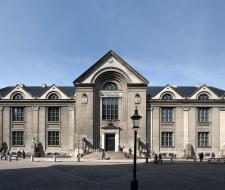 from 1622.00 $ / yearApply with documents
from 1622.00 $ / yearApply with documents -
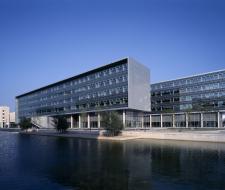 from 1000.00 $ / yearApply with documents
from 1000.00 $ / yearApply with documents -
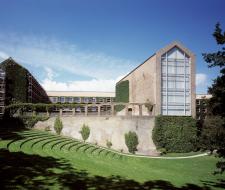 from 8000.00 € / yearApply with documents
from 8000.00 € / yearApply with documents -
 Apply with documents
Apply with documents -
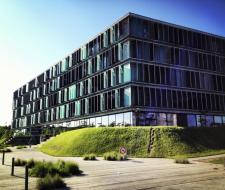 #6 in Best Global Universities in Denmark
#6 in Best Global Universities in Denmark DenmarkCopenhagenCurrently watching: 1from 18000.00 € / yearApply with documents
DenmarkCopenhagenCurrently watching: 1from 18000.00 € / yearApply with documents -
 from 4350.00 € / semesterApply with documents
from 4350.00 € / semesterApply with documents -
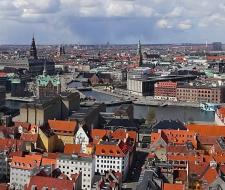 from 1975.00 € / 15 lessonsApply with documents
from 1975.00 € / 15 lessonsApply with documents
Alternative destinations
Education information
Denmark is a developed country in the south of Scandinavia. High standard and safety of living is the main advantages of the country. Foreign school children choose Denmark for an education abroad also because of high quality of education, which helps in the future to enter top universities in Europe.
Unlike other Scandinavian countries, Danish universities have a large number of educational programs in English already at the bachelor's level. Foreign students can also use English in everyday life, as many people here know foreign languages. However, those who want to find a job here after graduation will need to know Danish.
Level of study in Denmark can be on the same level in some cases as at the top European countries , and a diploma obtained at Danish universities guarantees employment abroad.
Higher education in Denmark took 5th place in the ranking of the best countries according to Universitas 21 and 2nd place among the Scandinavian countries. Educational staff at the best universities in Denmark try to keep up with the times and use innovative educational methods.
Study in Denmark: Opportunities for International Students
Denmark offers a comprehensive and flexible education system, catering to various needs and interests of international students. This guide will explore the various stages and costs associated with studying in Denmark.
1. Secondary Education in Denmark: A Holistic Approach
Denmark’s educational system emphasizes the overall development of children, starting from preschool. Here, the focus is not solely on academic learning but on nurturing social skills and creativity. Children are encouraged to engage in outdoor activities and play, which forms a significant part of their education. The journey through Danish secondary education typically includes:
-
Preparatory class for 5-6-year-olds, focusing on kindling interest in learning rather than academic rigor.
-
A blend of primary and secondary education, culminating in exams at grade 9.
-
An optional 10th grade, based on the student's choice and needs.
-
Senior secondary school for university preparation or vocational training.
2. Vocational Training and Professional Education
Denmark's vocational education is updated annually and includes practical training, enabling students to start working immediately after completion. These programs are available during secondary education, offering a practical approach to learning.
3. Preparing for Higher Education: Diverse Educational Programs
Denmark’s preparatory programs for higher education include various specialized tracks such as Gymnasium, STX, HHX, HTX, and HF programs. These cater to different fields like natural sciences, social sciences, economics, and engineering.
4. Flexibility in Secondary Education
A unique aspect of Danish education is the allowance for remote or homeschooling, provided students meet the required educational standards by the final exams. This flexibility extends to schools and teachers who can adapt programs and methods to suit individual student needs.

What aspects and criteria do parents consider when choosing a school, in addition to academic success?
Accommodation conditions, sports opportunities, catering and additional clubs and clubs organized by the school, proximity to the school of residences or host families are very important.
Higher Education in Denmark: Structure and Fees
1. University Education and Learning Approach
Universities in Denmark emphasize group assignments, practical projects, and individual work. Courses are structured to earn educational credits, similar to other European systems. The focus is on teamwork, laboratory work, and engaging discussions.
2. Types of Bachelor’s Degrees
-
General Bachelor’s Degree: A 3-year program, typically a precursor to a master's degree.
-
Professional Bachelor’s Degree: Lasting 4-4.5 years with a practical focus.
-
Bachelor of Arts: A 3-year program in arts-related fields.
3. Admission to Bachelor’s Programs
Admission for international students may require completion of the first or second year at a local university or passing Danish final exams. In some cases, a high-scoring foreign educational certificate may be accepted.
4. Costs of Study in Denmark
For non-EU international students, tuition fees at top universities start from around 10,000€. The quality of education is on par with leading European institutions. Master’s programs take 2-3 years, and many postgraduate programs are free.
Language Courses in Denmark: An Overview
Language courses in Denmark vary based on several factors:
-
Program type.
-
Accommodation options.
-
Extracurricular and excursion activities.
-
Course duration and intensity.
-
Availability of personal lessons.
Regardless of the chosen program, a high level of educational quality is assured.
In conclusion, studying in Denmark offers a range of opportunities, from secondary education to higher education and language programs. With its focus on holistic development, practical learning, and flexibility, Denmark presents an attractive destination for international students seeking to study abroad.
General educational statistics in Denmark
Denmark - General information
| Region | Nordic Countries |
|---|---|
| Capital | Copenhagen |
| Language | Danish, Faroese |
| Currency | Danish Krone |
| Population | 5,602,536 |
| Students | 240,000 |
| Foreigner students | 89.6% |
Statistics - Rankings in Denmark
| Arts and Humanities | 28 |
|---|---|
| Engineering and Technology | 27 |
| Life Sciences and Medicine | 23 |
| Natural Science | 31 |
| Social Sciences and Management | 22 |
| Mathematics | 21 |
| Physics | 30 |
| Chemistry | 20 |
| Computer Science | 14 |
| Economics & Business | 9 |
Statistics - Education in Denmark
| Popularity rating in the world | 27 |
|---|---|
| Ranking of universities in the world | 14 |
| Academic Reputation | 29 |
| Employer Reputation | 24 |
| Quality of teaching | 22 |
| International Faculty | 22 |
| International Students | 12 |
| Citations per Faculty | 27 |
Statistics - Universities in Denmark
| Universities in top 100 | 2 |
|---|---|
| Universities in top 200 | 3 |
| Universities in top 500 | 5 |
| Universities in top 1000 | 6 |
| Universities in top 5000 | 8 |
Cost of living in Denmark
| Expenses - USD/Month. | Min. | Med. |
|---|---|---|
| Accommodation | 358 | 500 |
| Food | 228 | 523 |
| Transportation | 45 | 213 |
| Communications and utilities | 69 | 90 |
| Clothing | 32 | 120 |
| Sports and leisure | 25 | 114 |
| Total | 757 | 1,561 |
Accommodation in Denmark
| Shared room outside of centre | 361 |
|---|---|
| Shared room in city centre | 505 |
| 1 bedroom apartment outside of centre | 545 |
| 1 bedroom apartment in city centre | 792 |



